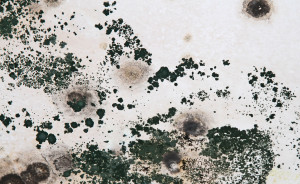Condominium Mold Claims
Condominium owners are frequently the victims of water intrusion and the toxic mold that grows as a result. While it can sometimes be tricky to determine who is the proper party to pursue, in most cases the responsible parties will attempt to shift the repair burden on to you. Sometimes another unit owner was negligent, or violated the condominium’s rules and regulations in allowing the water leak to occur. In other situations, the condo association is responsible for the leak and the resulting damage. In either case, many condo owners are unaware that Florida’s Condominium Act protects them from associations who fail or refuse to make necessary repairs to the common elements (which typically includes the ceilings and perimeter drywall) which were damaged by someone other than you.
The failure to promptly mitigate water damage can result in water damaged materials or the formation of dangerous mold in your individual unit. If you are being exposed to toxic mold, you need to take action. Toxic mold, while not always visible to the naked eye, may affect your health and damage your personal belongings. In order to start a claim against an association, it is very important that you notify the association in writing. If the Association fails to properly address the problem within a reasonable period of time, the law allows you to file a legal action against the association and the association has to pay your legal fees if you are successful. Remember that providing the correct written notice to the association must be done very carefully and must meet all of the requirements of the law in order for it to be effective. For a more in-depth explanation of the Condominium Association’s responsibility to maintain the damaged areas in your unit, please read our blog article on this subject.
We invite you to contact our Condo Mold Lawyers for a free consultation. In most situations, we are able to take these types of cases on contingency with no up-front or out-of-pocket cost to you.
Health Symptoms of Mold Exposure
The effect of mold on your health
Although every person has a different health reaction to mold exposure, certain symptoms have been recognized as common among individuals who have been exposed to toxic mold or are living in a water damaged environment. Common health concerns which typically result from mold exposure include: asthma, allergic reactions, mucus build-up, difficulty breathing, respiratory infections, wheezing, chronic cough, bronchitis, chest pain, sinus pain or pressure, extreme fatigue, skin reactions, nose bleeds and headaches.
In addition, certain types of people may be more sensitive to the exposure to toxic mold. These people include: people with existing respiratory conditions, such as allergies, chemical sensitivities, or asthma; persons with weakened immune systems (such as HIV infected persons, cancer chemotherapy patients, and so forth); and (c) infants, young children, and older persons. These types of people are more likely to suffer more severe symptoms than someone with a healthy, and normal functioning immune system.
Are Some Molds More Hazardous Than Others?
Although any type of mold can cause sickness, certain types of molds may be more dangerous because of their toxicity and their ability to produce mycotoxins. Molds the produce mycotoxins, such as Stachybotrys chartarum typically grow in residences. These toxic molds carry mycotoxins on their spores. If these molds are disturbed, they can release large amounts of mycotoxins into the air. The main way people are exposed to mycotoxins in their homes is by breathing the mycotoxins in. Normally, there is always a very small amount of mycotoxins in the air everywhere. However, when there is toxic mold in residences, there is a much greater amount of mycotoxins in the air.
Do you have a mold problem?
If you believe you have a mold problem in your residence, contact our mold attorneys for a free, no-obligation consultation of your case. Read our guide of what to do if you have a mold problem in your residence. If you believe your health has suffered or you have incurred other damages, contact our mold attorneys for a free, no-obligation case evaluation.
How Does Mold Grow?
In order for mold to grow, it requires a water source. Typically, mold will present itself after the occurrence of water damage or hidden water leaks. Although you may see visible mold growth or a musty mold odors, sometimes mold grows behind walls, underneath flooring, in the ceilings, or even in your air conditioning ducts. When mold gets into your air conditioning duct system, this can result in you inhaling the mold when you breathe and can result in the development of asthma, allergies and respiratory infections including the triggering of asthma, an increased wheeze, cough, difficulty breathing, and other symptoms.
Contact Us Today for a
Free Consultation


